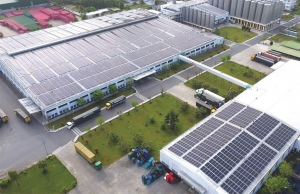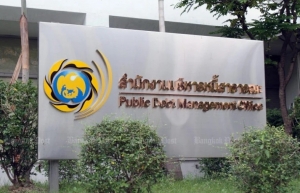ESG activity needs clearer roadmap
Nguyen Dinh Tho, director general of the Institute of Strategy and Policy on Natural Resources and Environment, under the ministry of the same name, said environmental, social, and governance (ESG) implementation not only helps minimise negative impacts on the environment but also brings benefits.
 |
| ESG activity needs clearer roadmap - illustration photo/ Source: freepik.com |
“Enterprises have many new opportunities to expand markets and enhance competitiveness in trade and investment activities,” Tho said at a seminar on ESG standards held in Ho Chi Minh City last week.
Looking at the global context, Tho said that, after the global crisis of climate and environmental pollution, many countries have introduced new rules for sustainable development in trade and investment. “Many new trade agreements have also been born that include requirements on sustainable development reporting,” he said.
According to Tho, the journey to net-zero emissions as part of the environmental aspect of ESG usually takes several years and emphasised issues related to measuring emissions scope, because this is the basis of ESG performance and the basis for setting corporate goals.
Giandomenico Zappia from the European Chamber of Commerce in Vietnam assessed that, in the context that every government and every business are aiming for sustainable development, issuing an ESG report is necessary to help businesses better ensure compliance, identify risks, and improve performance.
“In the EU, many regulations have been issued, including green definitions in the EU Taxonomy sustainable finance classification list or a series of requirements in regulations requiring the disclosure of sustainable risks, supply chain ESG due diligence requirements, and the carbon border adjustment mechanism,” he said.
Zappia pointed out that in Vietnam, the government has begun to pay more attention, specifically demonstrated through the requirement to disclose the environmental and social impacts of public companies or developing a green classification system and sustainability reporting manual guidelines.
“However, the non-mandatory application of specific standards for ESG in Vietnam can lead to inconsistencies in reporting practices,” he recommended, adding that the government and authorised agencies needs to quickly research and issue regulations and guidelines to increase transparency and promote related practices in Vietnam.
Dr. Tran Du Lich, vice chairman of the Vietnam International Arbitration Centre, said that sustainable development associated with a circular economy is currently a global trend, in which the practice of ESG criteria is becoming increasingly common and receiving even more profound and serious attention from the business community.
“To practice ESG, businesses need to have a roadmap and serious investment in each aspect. In which, good governance will be the basis to help businesses fulfill environmental and social criteria,” Lich said.
According to Lich, the issue of risk management is a point that needs more focus.
“ESG risk is currently an issue that many businesses face when entering into this standard practice. To improve risk management capacity for businesses, governments and related organisations need to quickly develop mechanisms, policies, and legal regulations to provide specific guidance for businesses,” he stressed.
Meanwhile Do Thi Thu Ha, deputy CEO and head of Sustainable Development Consulting at KPMG, said, “Enterprises must pay attention to social safety standards, the proportion of female workers, a safe environment for workers, and how the enterprise is managed. If we look at the rate of 80 per cent of businesses committed or planning to soon practice ESG, we can find it quite encouraging, but actually complying with commitments is not easy.”
Difficulties in implementing ESG, according to Ha, is lack of information and databases. Vietnam currently has as many as 2,000 businesses that must declare emissions before December 2024, but many are facing difficulties in collecting accurate information and cannot declare either.
In addition, Vietnamese businesses also lack expertise in building strategies to implement ESG, and face difficulty assessing the impact in business. “Especially, some Vietnamese businesses are currently carrying out ESG in a superficial manner. ESG is a journey, not a destination. Therefore, the government should have detailed regulations and enforcement applied to those,” she said.
 | ESG considerations light the path for SABECO’s success Saigon Beer-Alcohol-Beverage Corporation is promoting more green growth initiatives, demonstrating its steadfastness in the goal that business investment must go hand-in-hand with the nation’s sustainable development. |
 | Thailand to issue 20 billion THB in sustainable bond sales Thailand’s Public Debt Management Office (PDMO) is set to issue 20 billion THB (540 million USD) in sustainable bonds to institutional investors this year. |
What the stars mean:
★ Poor ★ ★ Promising ★★★ Good ★★★★ Very good ★★★★★ Exceptional
Related Contents
Latest News
More News
- A golden time to shine within ASEAN (February 19, 2026 | 20:22)
- Vietnam’s pivotal year for advancing sustainability (February 19, 2026 | 08:44)
- Strengthening the core role of industry and trade (February 19, 2026 | 08:35)
- Future orientations for healthcare improvements (February 19, 2026 | 08:29)
- Infrastructure orientations suitable for a new chapter (February 19, 2026 | 08:15)
- Innovation breakthroughs that can elevate the nation (February 19, 2026 | 08:08)
- ABB Robotics hosts SOMA Value Provider Conference in Vietnam (February 19, 2026 | 08:00)
- Entire financial sector steps firmly into a new spring (February 17, 2026 | 13:40)
- Digital security fundamental for better and faster decision-making (February 13, 2026 | 10:50)
- Aircraft makers urge out-the-box thinking (February 13, 2026 | 10:39)

 Tag:
Tag:













 Mobile Version
Mobile Version